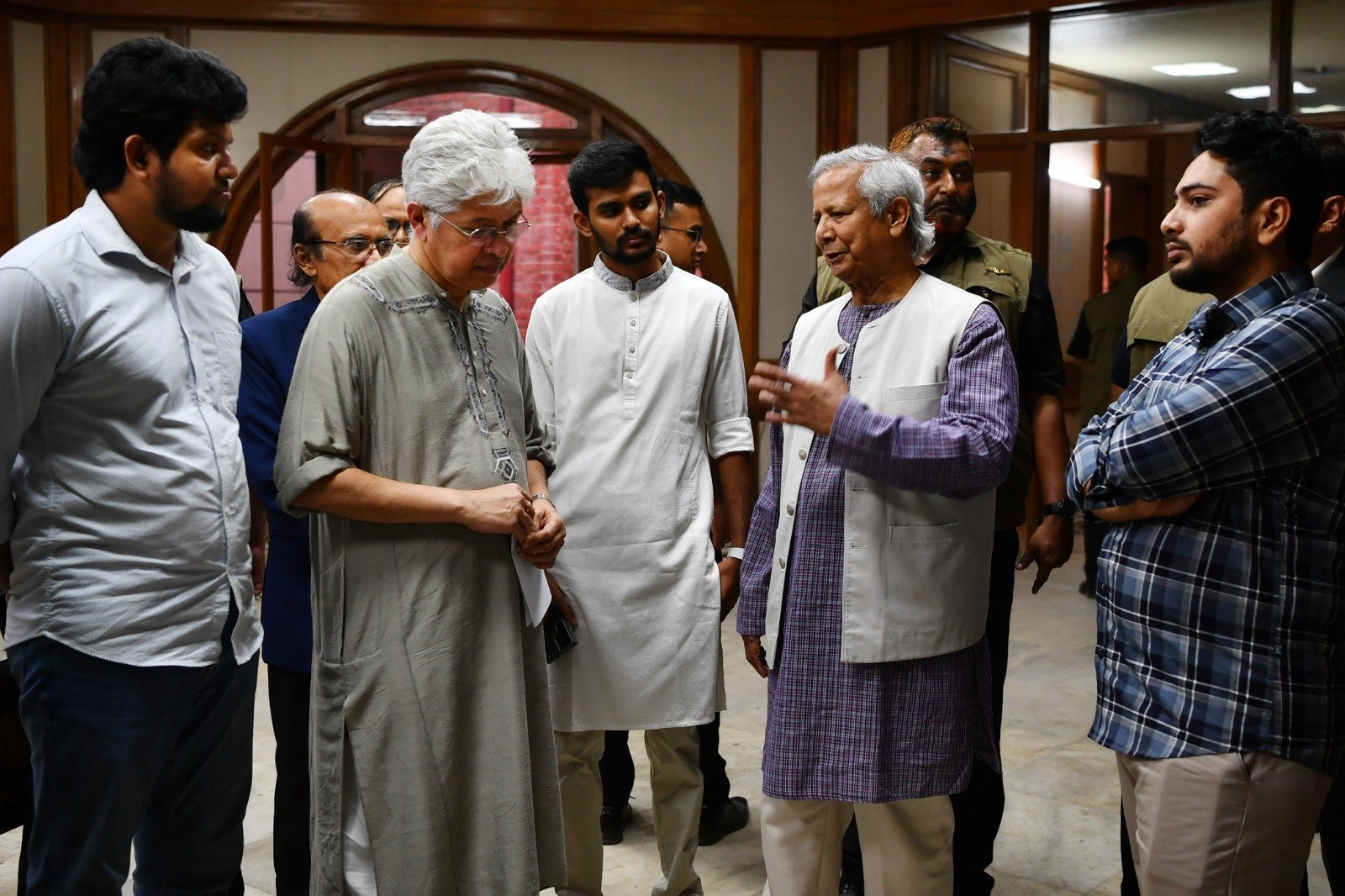Chief Adviser Professor Dr Muhammad Yunus on Monday asked the authorities concerned to set up a replica of Aynaghar (Mirror House) at Gonobhaban, which is set to turn into a museum to preserve the memories of July-August mass uprising.
“During a visit at Gonobhaban today, the Chief Adviser instructed to keep a replica of Aynaghar in the museum so that people can know about the torture on the people in the secret prisons,” Chief Adviser’s Deputy Press Secretary Abul Kalam Azad Majumder told a press briefing at Foreign Service Academy on Monday evening.
He said Chief Adviser Prof Yunus visited Gonobhaban for the first time since his assumption in the office on August 8.
Advisers Adilur Rahman Khan, Nahid Islam and Asif Mahmud accompanied the Chief Adviser during the visit, Azad said.
The Chief Adviser gave instruction on how a memorial museum on the July-August mass uprising could be set up at Gonobhaban and how its construction works could be accomplished fast, he said.
The deputy press secretary said Prof Yunus directed Adviser Adilur Rahman Khan to involve experts and architects with this initiative.
Gonobhaban, which once was used as the residence of ousted dictator Sheikh Hasina during her 15 years regime and became a symbol of repression of her brutal rule.
Prof Yunus asked the advisers to take initiative for fast-track construction of the museum for preserving the memories of the July-August mass uprising.
“The museum should preserve the memories of her (Sheikh Hasina) misrule and the outrage of the people which they expressed after her ouster from the power,” he said.
Replying to a question, Azad said many people were involved with the torture in Aynaghar, a secrete torture cell of Sheikh Hasina regime, and a commission has been working to identify those people to bring them to justice.
Speaking at the press briefing, Chief Adviser’s Press Secretary Shafiqul Alam said a panel (commission) is working to know how many Aynaghars were there in the country and once the commission submits its report, the overall scenario will come to light.
Responding to another query, Azad said the Aynaghar has become a symbol of repression. Once the replica of Aynaghar is set up at Gonobhaban, the next generations will be able to know how much torture was carried out on the people keeping them confined in those secrete cells, he said.






